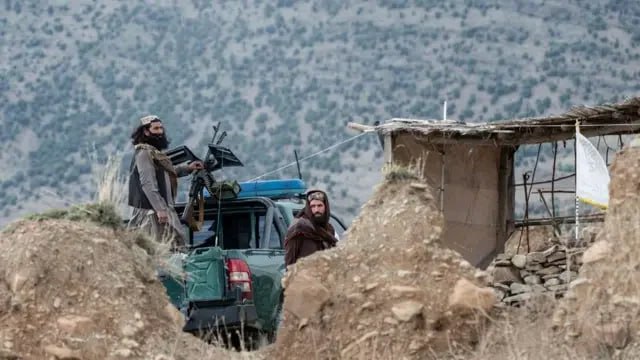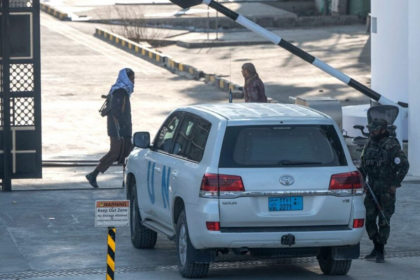RASC News Agency: Local sources in eastern Afghanistan report that Taliban fighters and Pakistani border guards engaged in an armed confrontation in the remote Dor Baba district of Nangarhar province. The clashes, which erupted on Tuesday afternoon, continued into Wednesday morning, July 16. According to eyewitness accounts, both light and heavy weapons were used during the fighting. As of yet, there have been no confirmed reports of casualties within Afghanistan. However, Pakistani media outlets have verified that gunfire and explosions in the Zakha Khel region of Khyber Pakhtunkhwa resulted in the tragic deaths of at least two children.
Neither the Taliban authorities in Kabul nor the government in Islamabad has officially commented on the incident. Nonetheless, the skirmish reflects a troubling pattern of recurring cross-border hostilities that has intensified since the Taliban’s return to power in 2021. These tensions have exposed the Taliban’s inability or unwillingness to maintain national sovereignty and ensure the security of Afghanistan’s eastern borders. The long and porous border between Afghanistan and Pakistan has, in recent years, become a flashpoint for repeated confrontations. Artillery shelling, border incursions, and exchanges of heavy fire have become routine. In many of these incidents, it is Afghanistan’s civilian population that bears the brunt. Residential areas in provinces such as Kunar, Nangarhar, Paktika, and Khost have come under direct attack from Pakistani forces, with homes destroyed and lives lost. Independent human rights groups have documented significant civilian casualties, the forced displacement of dozens of families, and widespread damage to essential infrastructure.
Pakistan often justifies its cross-border attacks by claiming they target the Tehrik-i-Taliban Pakistan (TTP), a militant group that Islamabad alleges has taken shelter on Afghanistan’s soil. The TTP has been responsible for a string of deadly attacks inside Pakistan and is widely believed to operate with impunity from safe havens across the border. The Tehrik-i-Taliban Pakistan is a splinter insurgent movement that has waged war against the Pakistani state for over a decade. Many of its fighters reportedly sought refuge in Afghanistan’s border provinces especially Nangarhar, Kunar, and Paktika following the Taliban’s return to power. Numerous intelligence assessments suggest that the Taliban not only tolerate the presence of the TTP within Afghanistan’s territory but have, in several instances, offered them covert logistical support. This alleged collaboration has become a source of deepening anger in Islamabad and a pretext for Pakistan’s increasing cross-border aggression.
Security analysts and humanitarian organizations have repeatedly warned that the unchecked escalation of such conflicts risks triggering a broader humanitarian crisis along the Afghanistan Pakistan border. Local residents face extreme vulnerabilities due to the chronic absence of healthcare services, emergency relief, and basic infrastructure. The prolonged insecurity has made life in these border regions increasingly untenable. While Islamabad accuses the Taliban of harboring anti-Pakistani insurgents, Taliban officials in Kabul have sporadically issued statements condemning Pakistan’s attacks but these responses are often vague, diplomatically muted, or completely absent. The Taliban’s failure to mount an effective defense of Afghanistan’s territory or to meaningfully protest Pakistan’s repeated violations has led many observers to question the regime’s commitment to national sovereignty.
The recent outbreak of violence in Dor Baba marks yet another episode in the long-running saga of militarized tension along Afghanistan’s eastern frontier a region now more than ever caught in the crosshairs of competing security agendas, political mistrust, and the escalating victimization of innocent civilians. In the absence of legitimate governance and transparent diplomacy, it is ordinary Afghanistanis especially those living in remote and underserved border districts who continue to pay the highest price.






